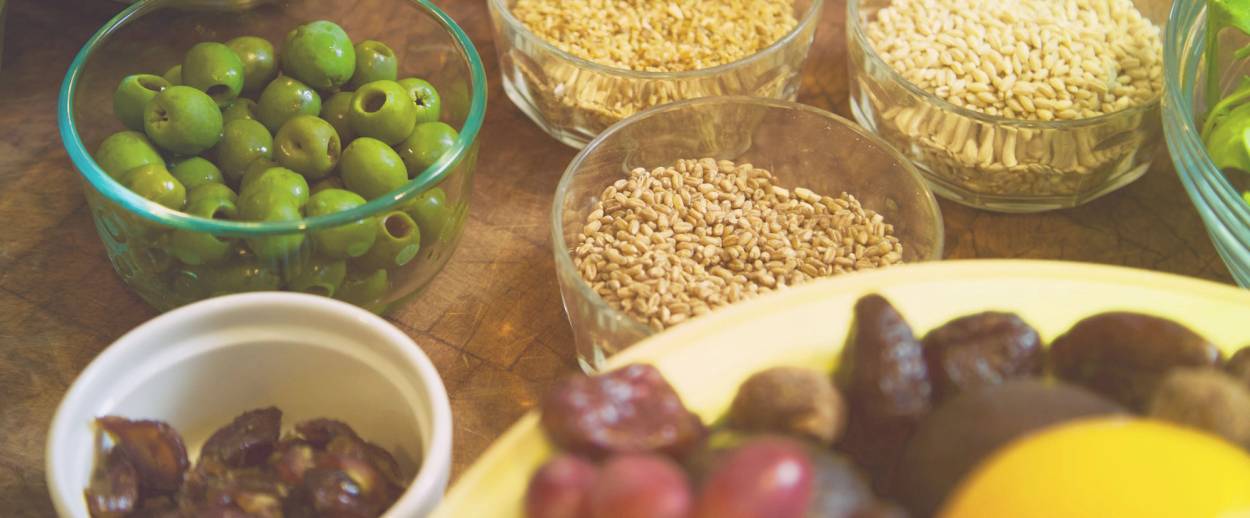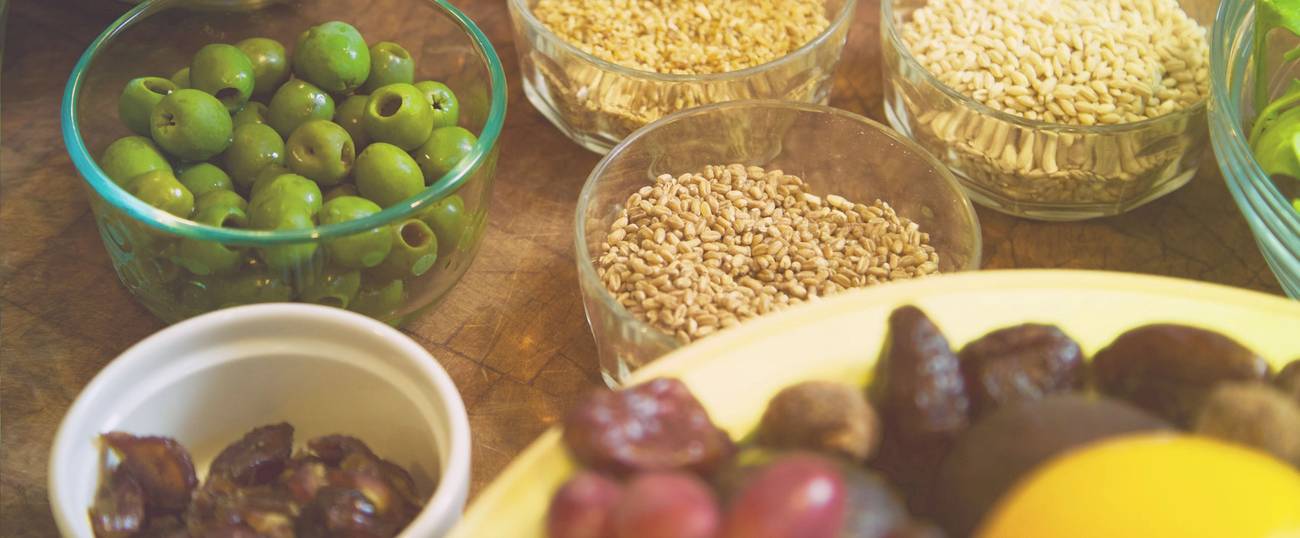How To Make a Salad That Brings Together the Flavors of Ancient Israel
Filled with figs, dates, pomegranates, and olives, it’s perfect for Tu B’Shevat—or any time of year




This weekend marks Tu B’Shevat, the New Year of the Trees—an agricultural holiday whose culinary customs involve eating several kinds of fruits, nuts, and grains. These include the seven species named in the Torah as the main produce of ancient Israel: wheat, barley, grapes, figs, dates, pomegranates, and olives. Other fruits are included from a variety of categories: those with inedible outer skin around edible fruit, such as oranges and grapefruit, or nuts; those with an inedible pit surrounded by edible outer fruit, such as plums or apricots; and ones that are entirely edible, such as figs or grapes.
These guidelines come from the Bible, the Talmud, and scholars like Moses Maimonides. A doctor living in the 12th century, he studied the quality of food. “One should always be abstemious in regard to fruits which grow on trees,” Maimonides wrote in Ethical Conduct. “These should not be eaten freely, even when dried, and, needless to add, when they are fresh. Before they are quite ripe, they are like daggers to the body. … But figs, grapes, and almonds are always good to eat—whether fresh or dried and maybe eaten as much as one needs; but they should not be eaten constantly, even though they are best of the tree-fruits.”
Julia Braun, a caterer in northern California, created a Tu B’Shevat Seder last year for 100 people at Urban Adamah, a Jewish farm in Berkeley. One of the dishes incorporated figs, olives, pomegranates, barley, flour, grapes, and dates into a delicious salad (recipe here) that can be served all year round. As we consciously taste the biblical fruits at Tu B’Shevat, they serve as a bridge between the past and present of food traditions.
Joan Nathan is Tablet Magazine’s food columnist and the author of 10 cookbooks including King Solomon’s Table: a Culinary Exploration of Jewish Cooking from Around the World.